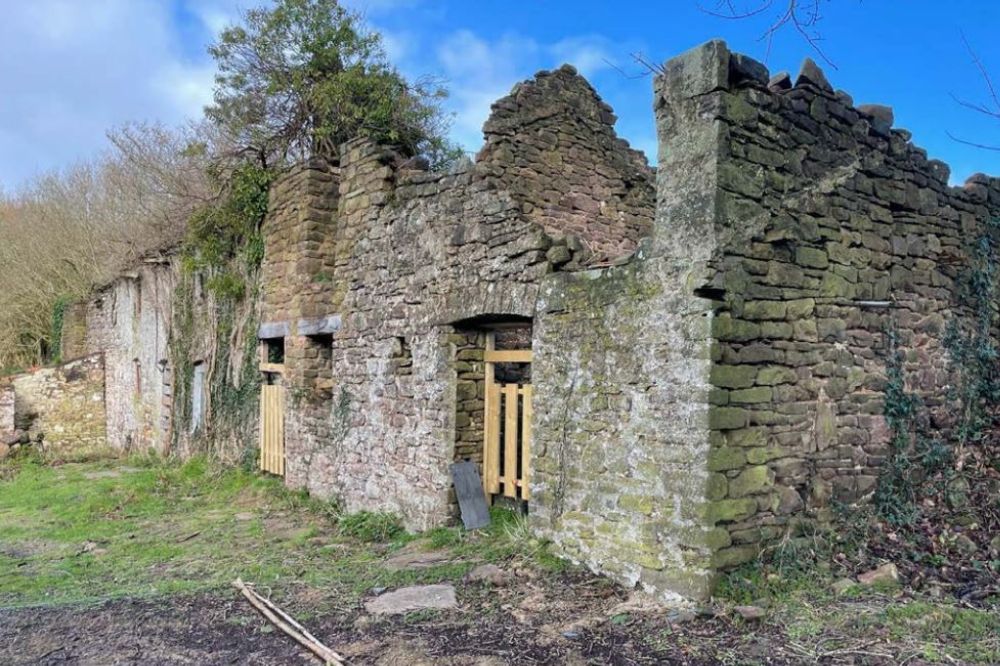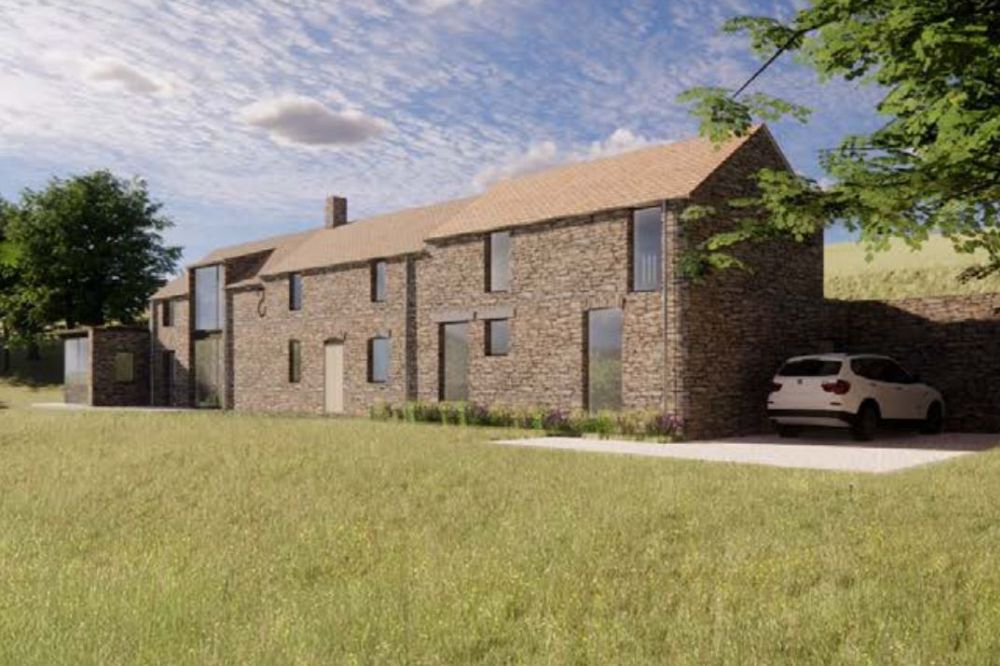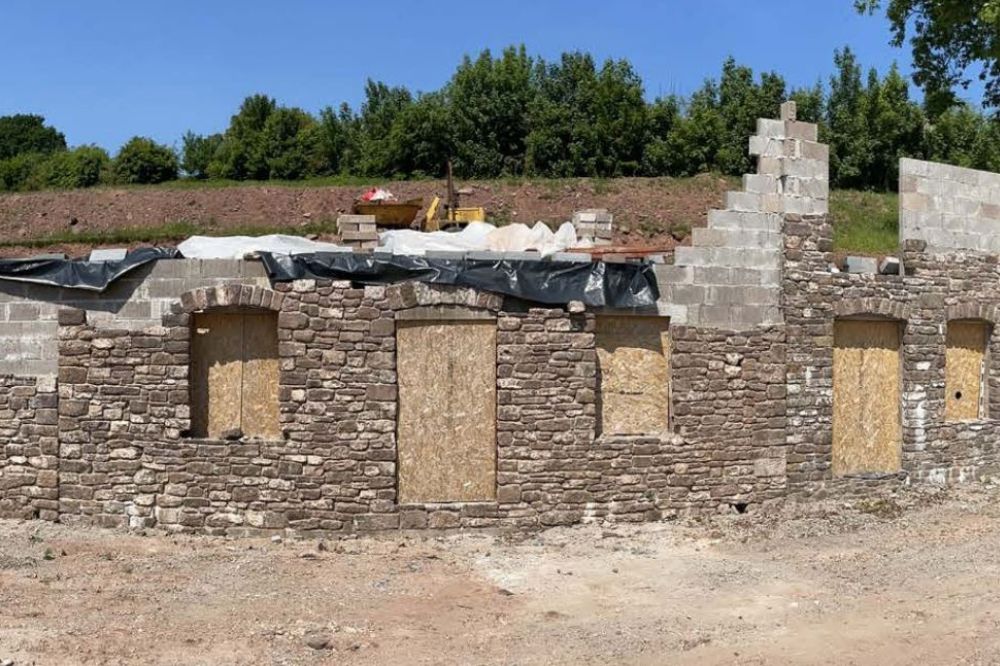Family could lose everything after farmhouse collapse saw planning permission revoked

Twm Owen – Local Democracy Reporter
A family who used their life savings to rebuild a 200-year-old farmhouse “could lose everything” after its collapse saw their planning permission revoked.
Mike Wells and his wife were originally given permission in 2018 to rebuild Bushes Farm, a stone farmhouse that dates back to at least 1882, in the open countryside at Earlswood near Shirenewton.
But when the original walls collapsed during the rebuild it sparked complex legal wrangling that has seen two further planning applications related to the rebuild rejected.
Mr Wells was also accused of harming a bat roost during the rebuilding works only for the case to be dismissed by a court that found there was “no case to answer”.

Rejected
The latest application, described as for a “replacement dwelling”, was rejected by Monmouthshire County Council’s November planning committee only after the chairman reluctantly used his casting vote to accept the recommendation from officers the application be refused.
Caerwent councillor, Phil Murphy, said “I don’t want to but I have to vote for refusal”.
In December last year Mr Wells had also asked the committee to approve alterations to the 2018 permission, after the council said it was “apparent the building was no longer standing” and disputed any of the original remained. That application was also refused and is currently subject of an appeal to Welsh planning body PEDW.
A report for this November’s committee disputed the description of the latest application as for a “replacement dwelling”. Officers said though it would “occupy roughly the same footprint as the former farmhouse” described it as a new five bedroom home in the open countryside where new buildings are not normally allowed.

Refusal
Agent Geraint John, representing the Wells family, told the committee: “They are a young family who’ve seen their aspirations for a family home, and life savings, put at huge risk as a result of unforseen circumstances and the seemingly uncompromising planning process. They stand to lose everything and their health has already suffered.”
Mr John said the planning department had made the “wrong assumption the building was purposefully and willfully demolished and the planning permission not implemented”. He said there was no evidence to support that, while £30,000 had been spent trying to salvage the building.
He said there had been an attempt to prosecute Mr Wells for destroying a bat roost and said “that was dismissed by the court that found there was no case to answer”.
Planning officer Amy Longford confirmed there was no evidence the home had been “purposefully demolished” but said: “Unfortunately the situation is the building is no longer standing, the walls and roof have gone.”
After a number of councillors said they intended to vote against the recommendation for refusal head of planning Craig O’Connor reminded them there would be the “safeguard” of an appeal. He also said councillors would have to show what planning policies would support approval.

Appeal
Councillor Meirion Howells said he supported the application and the house would “look very much like it did 200 years ago.”
Cllr Su McConnell said she would vote “with a heavy heart” to refuse the application adding: “I’m hoping against hope the applicant is successful on appeal”.
The committee had to take a “roll call vote” which was tied at six in favour and six against, with the application rejected on Cllr Murphy’s casting vote.
The 2018 permission was granted under a policy that allows the conversion or rehabilitation of buildings in the open countryside for residential use.
The farmhouse had been vacant for some 40 years after permission was given, in 1975, for a replacement, known as Bushes Bungalow, immediately to the south of the site.
That bungalow is subject to an agricultural worker’s occupancy tie and it was a condition the original farmhouse was either demolished or used for agricultural storage.
Support our Nation today
For the price of a cup of coffee a month you can help us create an independent, not-for-profit, national news service for the people of Wales, by the people of Wales.






It seems that the building was likely so derelict as to be dangerous. It should have been demolished as part of the condition for building the bungalow. Likely it was beyond safe repair when the process of so-called rebuild was started. Essentially if it is reconstructed in the same external form as the original that ought to be acceptable. The owners should have been told that it was unfit for their project.